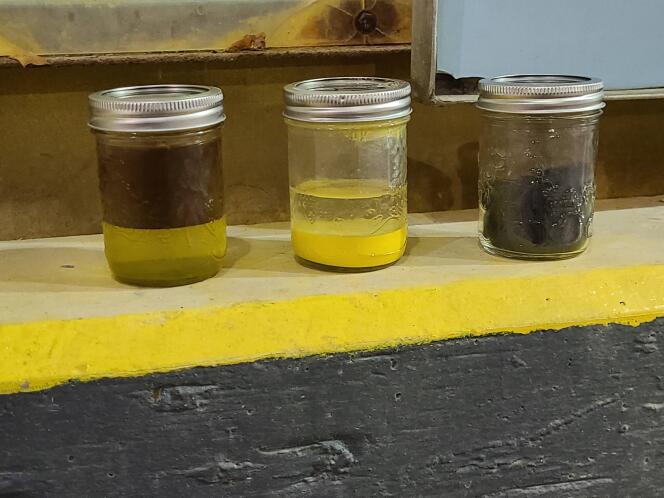
The finished product goes by the appetizing name of "yellowcake," but there's nothing edible about it. The yellow solution that comes out of the McClean Lake plant in Canada, operated by the Canadian subsidiary of French giant Orano (formerly Areva), is uranium oxide concentrate. It is "roasted" at high temperature and transformed into small black crystals, before being put into drums and shipped by truck to the United States or to ports bound for Europe.
It will have to undergo a further enrichment phase before it can be used as fuel in nuclear power plant reactors. At a time of rapid decarbonization of Western economies, this "yellowcake" has become the gold of the moment.
The precious ore is mined 700 kilometers north of Saskatoon, the economic capital of Saskatchewan, in the heart of Canada's vast territory. This province, larger than France and 70 times less populated, is rich in mineral resources. Its subsoil contains 23 of the 30 critical and strategic minerals identified by Canada as necessary for the energy transition, including potash, lithium, copper, helium, rare earths and, above all, uranium.
Canadian uranium reserves are estimated at 588,500 tonnes, which is 10% of the world's known reserves. This could be a financial windfall as the price of the ore has quadrupled since 2020, topping the $100/lb mark (€94 for 0.45 kilo) in February.
Promising, even strategic
In the midst of a taiga landscape, a mix of winter-snow-browned meadows and boreal forest, speckled with countless lakes, two of the world's largest and most promising deposits have been discovered in the so-called "Athabasca" sedimentary basin. This discovery is promising, even strategic, because their average uranium content is close to 18%, while the world average for mined deposits is less than 1%.
After McArthur River, the richest in terms of reserves, which went into production in 1999, the Cigar Lake deposit has benefited from an investment of $2.4 billion (€1.6 billion). Since 2014, it has been operated by Canada's Cameco Corporation, as part of a joint venture between Orano and Japan's Tepco. It is thanks to these Saskatchewan mines that, in 2022, Canada became the world's second-largest uranium producer, behind Kazakhstan, accounting for 15% of global production.
The Cigar Lake deposit takes the form of an irregularly contoured lens, set in sandstone at depths of between 410 and 450 meters. It is nearly 2 kilometers long, 20 to 100 meters wide and can reach thicknesses of over 13 meters.
You have 65.69% of this article left to read. The rest is for subscribers only.